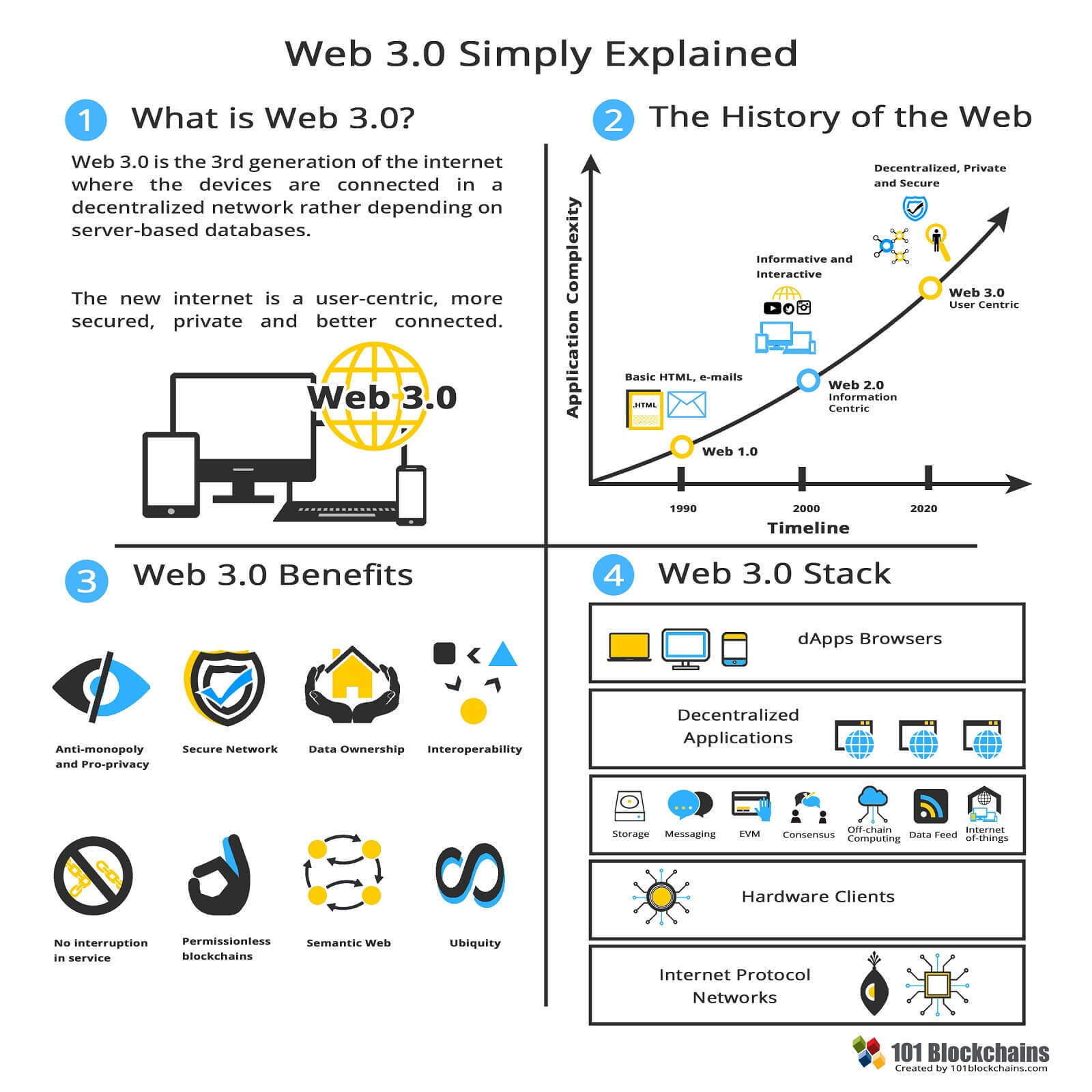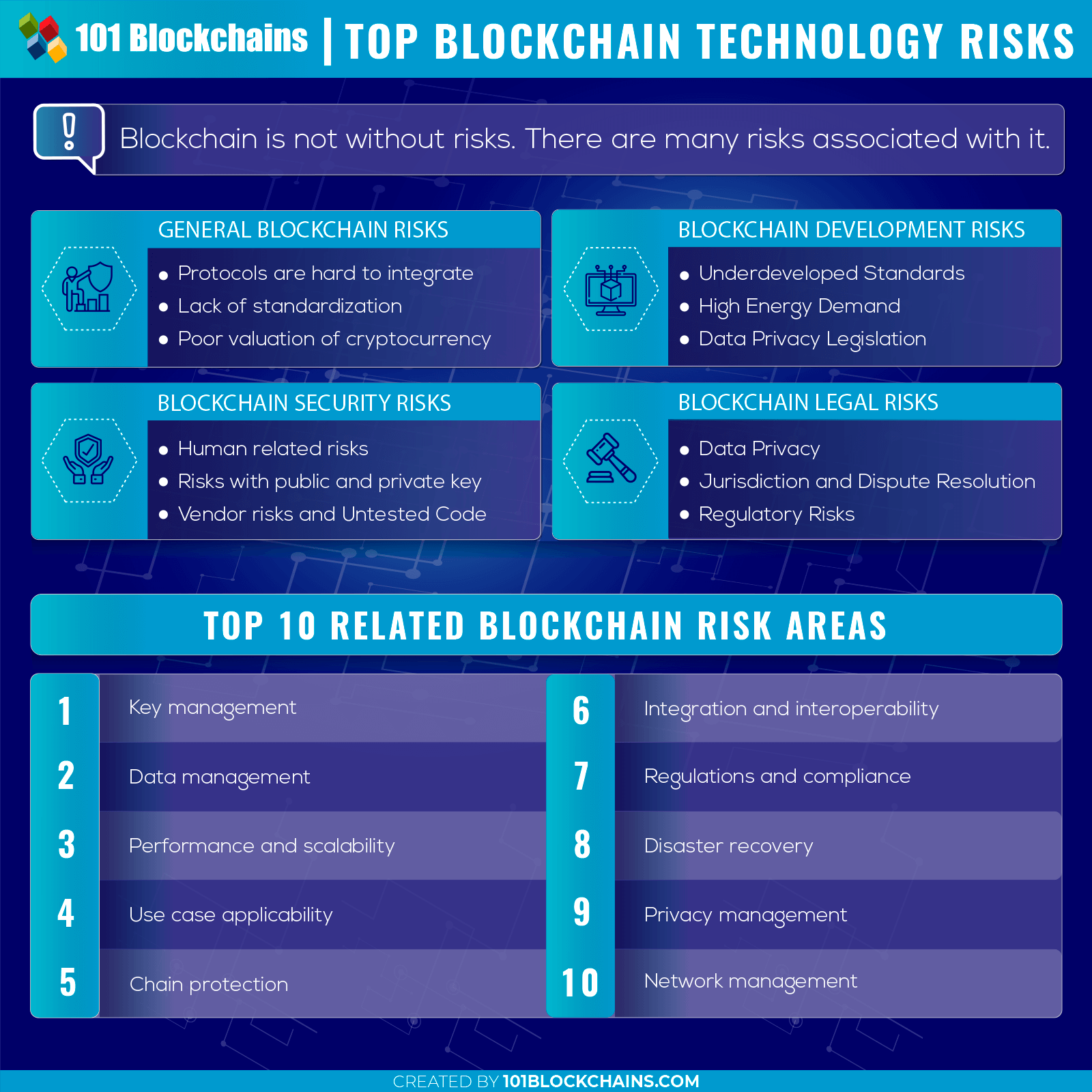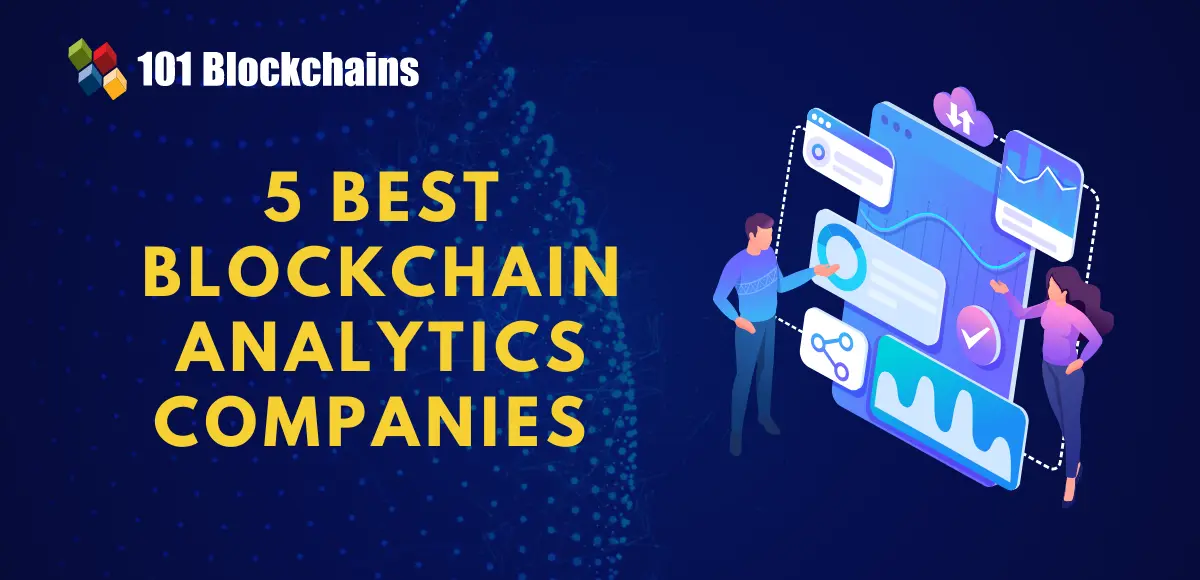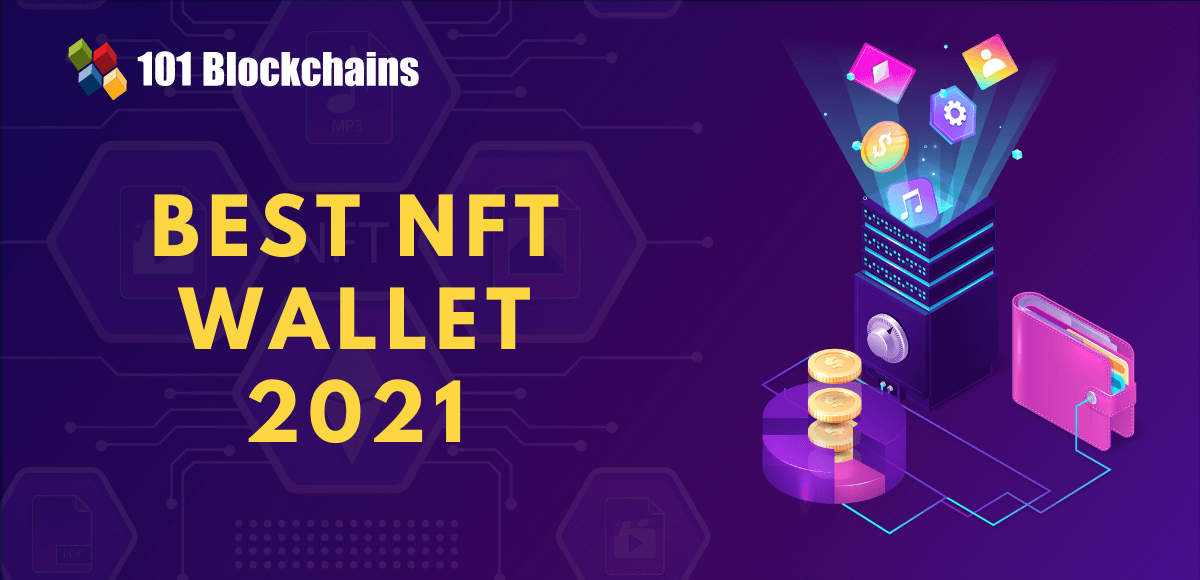Learn how blockchain truly works, master key definitions, and uncover what makes smart contracts so "smart." Dive into the fundamentals, gain valuable insights, and start your blockchain journey today!
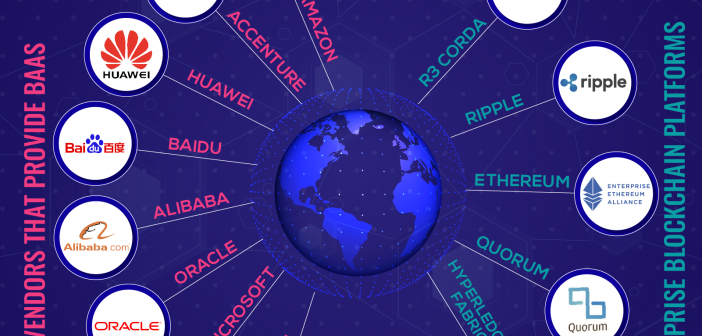
- Reviews
101 Blockchains
- on September 04, 2019
Blockchain For Executives Training
If you are an executive, then you should know how important it is to learn about blockchain.
In this article, you will learn about blockchain. It is an introductory course aimed at executives, “blockchain for executives training.”
In the current competitive market, it is important to learn about blockchain. To help you in the quest, let’s go through our blockchain training for executives agenda.
Why do you need to learn about blockchain?
Blockchain is the talk of the town. If you are in a senior managerial position, you will find the topic of blockchain discussed very often.
As an executive, you need to be well-versed with the basic concepts of blockchain. This will make you confident in your conversations, and also help you make decisions based on it. This is the core aim of the blockchain executive course.
If you are already a blockchain top management members, refreshing your basics can give you the necessary confidence to take tough decisions that require knowledge and expertise.
What topics should be covered in the blockchain for executives training course? And Why?
Let’s go through the topics that will discuss in our blockchain for executives training.
- Blockchain Introduction — To get a proper understanding of blockchain
- Blockchain’s impact is similar to the Internet — To know how blockchain is identical to the Internet in terms of impact and functionality
- Blockchain’s impact on different industries — Getting to know the current use-cases
- Banking and Finance
- Supply Chain
- Automobiles
- Government Services
- Digital Trust: The Ultimate Benefit — Understanding the importance of digital trust and how blockchain improves digital trust among users
- How does blockchain work? — Learning how blockchain works
- Customized ledger
- The ability to store anything
- Learning about cryptocurrencies: Cryptoeconomics 101 — Learn how cryptos work so that you the economy around blockchain
- Risk management — Learn how to do blockchain risk management
- Enterprise frameworks to know about — Learn about enterprise frameworks so that you can utilize it in your organization
- Conclusion
Why are the topics chosen for the blockchain for the executive course?
The blockchain for executives training is aimed towards executives that are not familiar with blockchain. The topics are chosen to get the basics right so that you can take more intensive blockchain executive courses.
The introductory course will get you familiar with the idea of blockchain, its use-cases, and other important things. By the end of the course, you will be able to do the following things:
- Explain blockchain
- Explain blockchain’s impact on our current industries
- Understand use-cases related to supply chain, banking and finance, government services and automobiles
- Understand the importance of digital trust and how blockchain can provide it.
- Get to know how blockchain works internally
- Learn about the economy around blockchain, i.e., cryptocurrencies and tokens
- Understand blockchain risk management
Our recommended course for Blockchain for Executives Training
Introduction: Blockchain
Blockchain has changed the world. Its decentralized approach is second to none. With it, peers can transfer information through the network without the need for a central authority.
Technically, you can think of blockchain as a chain of blocks. Each block contains transactional information that is stored and secured using strong cryptographic methods. So, if a peer decides to send information to another peer, it can broadcast the info to all peers. This needs to be included in the block and then verified using a consensus method.
Blockchain is a distributed ledger technology(DLT) which means that each peer stores a copy of the ledger or database. By doing so, the need for centralization is completely removed.
This DLT approach opens up new avenues for companies to explore. They can now make their systems more established than ever — by introducing a more secure and private decentralized system. It also instills transparency, immutability, and scalability to the whole platform.
That’s a good start for blockchain for executives training.
Blockchain’s impact is similar to the Internet
To get a better understanding of blockchain, let’s understand the uncanny similarity between blockchain and the Internet
Internet was a revolutionary technology. It changed our lives. It brought so many innovations, and it is still impacting our lives right now as well. With blockchain, our digitalization will become more mainstream.
There are many benefits of blockchain. To get a glimpse, let’s go through the benefits below:
- Information can now become more accessible than before. With blockchain, there would be no need for a centralized authority to store, exchange, and distribute records.
- The cost of managing the entire blockchain solution will be better compared to centralized authority. However, the choice of the consensus method determines the cost. In most cases, blockchain’s usage is beneficial when it comes to cost.
- Industries that are not disrupted by the Internet will start seeing change as well. This is due to how the data can be created, stored, and retrieved.
- Services that were vulnerable in the internet era will see change. For example, music sharing can become more transparent than ever with the removal of centralized platforms. New musicians will have a better chance to reach listeners than ever.
- The need for silos in the medical field will be slowly removed — improving the way patient’s medical data is stored. It will improve how doctors work and also change how research is done using publicly stored medical data.
Blockchain’s impact on different industries
There are many real-world use-cases for blockchain. Blockchain for executives training will also cover a small glimpse of the use-cases so that you can get an idea of the true impact of blockchain. Let’s mention a few of them:
Banking and Finance: From the onset, the biggest sector that you will see the impact would be banking and finance. Many enterprises related frameworks are already available, including Quorum. This framework offers the tools, features, and functionality to transform banking and finance services for using blockchain.
Many big players, including Visa, JPMorgan, American Express, etc., have already started their conquest to implement blockchain. Many of them are in proof of concept(POC), whereas some are running pilot programs.
Supply Chain: Supply chain is another area where blockchain will have the most impact. It will ensure that supply chain becomes more streamlined — with less or no frauds happening. The supply chain companies can now track every asset that is transmitted through it. Almost every piece of information can be tracked, ensuring that no frauds can happen. It also ensures that the bad products or items that missed the expiry date can be discarded.
Supply chain blockchain implementation also saves cost and time. IBM partnered with Walmart to produce its food supply chain.
Automobiles: Auto industry can also benefit from the blockchain. For now, most of the players are currently testing blockchain and are in the PoC stage. Players like Volkswagen Financial Services and Renault are the key players. Ford and Tesla are also developing their own blockchain that will help do them testing telematics tracking.
By doing the tracking, they can improve auto care, help the owners do take claim insurances and other benefits, including maintenance, and so on.
Government Services: Government services use-case is a special one as it portrays that the impact of blockchain, and not cryptocurrencies. Cryptocurrencies have seen a wild success among governments across the world — with many banning it outright. Blockchain, on the other hand, has given the government the ability to handle their systems more efficiently.
The use of blockchain will also mean that more trust in systems. The government can utilize blockchain in building smart cities, proper education, tracking vaccinations, giving loans, and payrolls. There are endless possibilities, and blockchain can help transform how government operates and work.
There are other sectors and use-cases where blockchain shine. To give you a better perspective, let’s list a few more of them below:
- Food safety
- Retail
- Healthcare
- Insurance
- Real Estate
- International Trade and Commodities
- Sports
And much more!
Digital Trust: The Ultimate Benefit
As an executive, you need to understand the importance of digital trust. All the technologies that are released up until now were not able to solve the digital trust problem.
Centralization is the key concept that is used by organizations out there. Take any corporation, and you will find that it is a big part of how things work. Centralization isn’t bad, but it is a failure when it comes to digital trust.
Right now, digital trust is the most expensive asset right now. With blockchain, it can become more accessible to everyone. With no central authority, you are bound to gain better trust from the peers who are participating in the network. Services and goods can be exchanged directly. No information or frauds can take place due to a lack of one controlling party.
Blockchains are also known for excellent security. Moreover, records will be immutable, which means that data once written cannot be modified. This works excellent for systems that rely upon proof of the transaction between two parties.
The transaction friction will also decrease, improving overall trade finance.
How does blockchain work?
Blockchain’s core idea is decentralization.
To achieve the core idea, it uses blocks in a chain.
You can think of it as a train which each compartment as a block. It is a one-way list, and hence you can only add a new block to the end of the list.
Blockchain doesn’t use a traditional database but relies on decentralized data structures. It organizes the data in the decentralized database. In the case of the traditional database, you can see the use of tables. In this case, data structures act as the source of storing the information. To ensure its inner working, cryptocurrency to reach consensus method.
The consensus method here is the most important concept.
The consensus method helps to reach a decision or consensus in the network. For example, if a transaction is made, the different peers will include in the consensus and then validate it according to the method used. There are many popular consensus methods.
Few of them include
- Proof-of-Work(PoW)
- Proof-of-Stake(PoS)
- Delegated Proof-of-Stake(DPOS)
- Proof of Capacity
Due to this approach, there is no centralized authority that controls the system. Paypal, for example, uses a centralized approach. Due to this, they can leverage a good margin when transferring a said amount. In comparison, blockchain only cost a fraction.
Customized ledgers
As an executive, you should know that there is no hard and fast rule. Blockchain for executives means understanding that it is genuinely possible to customize the blockchain according to an enterprise or business requirement.
The ledger consists of different elements that can be customized and kept simple at the same time. The complex objects interact with each other — they are defined according to the behavior set for them.
At the core, there are three main assemblies. They include
- Transactions
- Blocks
- Smart Contracts
Transactions take place when a peer sends information or valuable asset to another peer. It is the most basic form of computation that takes place in the blockchain. The ledger, which consists of blocks, gets the information, and adds it to it. However, the block needs to go through the scrutiny of the network using the consensus methods.
Once the transactions are broadcasted, it is added to blocks. The blocks then can be handled by the consensus method or the smart contracts that are used on the blockchain network.
So, what are smart contracts?
Smart contracts are legal code that is executed if a certain condition is met. They are coded according to the requirements and act as a way to automate things.
For example, let’s take two parties that are dealing with real-estate.
One party agrees to sell his property to another. To initiate the process, one party sends a certain amount to book the property. The smart contract registers the requests and books the property in the name of the buyer. Then, the documents are crafted using smart contracts and the data recorded within the special blockchain solution. With documents ready, the smart contract can now wait for the rest of the amount to be transferred. As soon as the rest of the amount is transferred, the smart contracts execute again, giving the proper rights of the property.
This way, the smart contracts automate multiple things including
- Booking the property
- Preparing documents including verification
- Registering the property
- Finalizing the property including verification
If you compare it to a real-world scenario, the process can take months to complete.
Data Integrity also plays a crucial role. As the data stored in the blockchain is immutable, it is already trusted. It improves communication and consensus.
Two-stage steps are taken to verify the information. The first one is communication, where new information is propagated from one peer to another. The second step is to do network validation using consensus.
- Step 1: Communication between peers
- Step 2: Network validation through consensus
The protocols used in a blockchain network can be different, and that can determine the time, cost, and method of the transaction. Customized ledger offers the use of protocols completely depend on the implementer.
The ability to store anything
Blockchain offers stores of value. You can store anything on the blockchain, which includes identity, raw information, transaction value, and so on. This also means that it can be used for certifications, judged-escrow, asset tracking, bonded identity, court, supply chain, badges, and so on!
Learning about cryptocurrencies: Cryptoeconomics 101
Cryptocurrencies are an integral part of the blockchain ecosystem. It will help you understand the economics around blockchain.
Cryptocurrencies are decentralized currencies that do not require any central authority for valuation. Anyone is free to use cryptocurrencies or trade in it.
Bitcoin is an excellent example of cryptocurrencies. Also, cryptocurrency is a real-world use-case of blockchain. It is the first use-case of blockchain.
When it comes to cryptocurrencies, you need to learn about the following:
- Signatures are used to identify the sender message.
- Hash is used to messaging topological order
- Consensus protocol determines how the transactions are verified
When it comes to the economic aspect of crypto, you need to learn about the following:
- Tokens used as an incentive for peers to work towards managing blockchain or cryptocurrency
- Privileges assigned to actors to make decisions
Risk Management
Risks are part of any technology. Blockchain has its own risk. As an executive, you need to learn about the risks associated with blockchain.
The general risks that surround blockchain include the following
- Hard to integrate blockchain protocols
- Lack of standardization
- Poor valuation of cryptocurrencies
These risks are common among almost every blockchain project you do. By learning these risks, you are now ready to tackle them.
If you are in the development team, then there are other kinds of risks associated. The blockchain development risks include the following
- Underdeveloped Standards
- High energy demand
- Data privacy legislation
- Trust among developers and blockchain managers
- Transaction speeds
- The user’s role
- Malicious users
If you are interested in learning more about the Blockchain Risks, then check out the detailed article on Blockchain Risks
Enterprise frameworks to know about
Building your own blockchain from scratch is not practical. That’s why you need to use enterprise blockchain frameworks.
There are many benefits to utilizing blockchain platforms. For starters, you will get the basics right out of the box. The basic blockchain will already be provided which you can customize according to your requirements.
Other benefits include improved efficiency, smart contracts, fraud prevention, transparency, performance review, and audibility.
You can check out the popular blockchain platforms as below:
- Hyperledger – Best blockchain platform out there. It is an umbrella project and has multiple framework projects developing under it.
- R3 Corda – R3 Corda is an open-source blockchain platform that takes a different approach in solving blockchain-related problems.
- Ethereum – A popular open-source blockchain which you can use to set up your blockchain
- Enterprise Ethereum – Enterprise Ethereum blockchain is an enterprise solution
- Quorum – Quorum is an enterprise blockchain solution focused on financial institutes.
Moreover, there are also blockchain platforms you can help you manage your blockchain. They are as follows
- IBM
- AWS
- Oracle
You can read a complete guide on enterprise framework here: https://101blockchains.com/blockchain-platforms/
In-Person Training and Why You Should Consider Taking it
If you are serious about learning about blockchain, then you can also check out the In-person training session.
By taking the in-person training, you will get the chance to understand blockchain much better. Moreover, you can also ask questions and clear your doubts in the full-fledged blockchain for executive training.
Conclusion
Blockchain for executives training is a hot topic, and if you made it up so far, then you should check out the in-person training offered at 101Blockchains.com. Also check out the Enterprise Blockchain Workshop, that you and your team can attend and grow your knowledge of real-world blockchain implementation. There will also be an in-person/instructor-led so that you can clear your doubts and maximize your learning.
So, what do you think about blockchain for executives training? Comment below and let us know.

